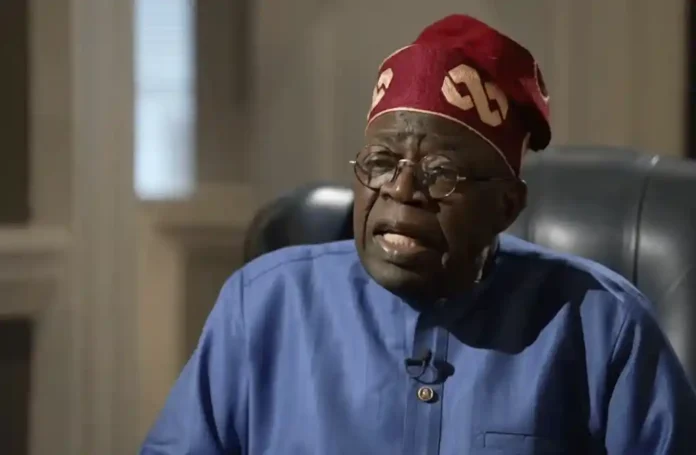The economy of Africa’s largest country is facing a dilemma between maintaining low interest rates and increasing them to attract foreign investments necessary to support the naira. This decision could have a significant impact on the country’s latest currency reform efforts.
President Bola Tinubu aims to decrease interest rates that he considers to be high for businesses. However, foreigners suggest that the rates on naira bonds would need to increase significantly before they invest in the newly liberalised official foreign exchange market.
Read Also Dollar to Naira exchange rate today Monday June 26, 2023
The Central Bank of Nigeria (CBN) sold one-year Treasury Bills at an auction with a yield of 8.2 percent, which is lower than the inflation rate of 22.4 percent in May. The yield on the T-Bill is lower than the monetary policy rate of 18.5 percent.
Nigeria has kept the interest rate on its local bonds low for years to manage the government’s borrowing costs.
Pay attention to :
- Happy Eid-el-Kabir 2023 Wishes, Prayers, and messages
- 21 Happy Eid-el-Kabir Prayers for Sallah
- 20 best wishes and greetings for Eid-el-Kabir
According to the World Bank data, raising interest rates may not be a simple task after debt service costs reached 96 percent last year.
The government spent a significant portion of its earnings repaying creditors last year and may face increased spending if interest rates rise.
Read Also First Lady, Remi Tinubu Appoints Betta Edu, Chioma Uzodimma, Others (Full List)
Nigeria may face the risk of displeasing foreign investors if it maintains artificially low rates.
Foreign investors have expressed that the negative real return, resulting from interest rates that are lower than the inflation rate, may discourage new dollar inflows. The return being negative may impact the competitiveness of naira assets in comparison to other emerging markets in attracting foreign capital.
Abrdn Investments Ltd, based in London, stated that an increase in rates to a range of 15-20 percent would be necessary to bring its funds back onshore.
Nigerian Idol top 5 finalists : Nigerian Idol 2023 top 5 contestants
In 2016, Nigeria had to make a decision between lowering interest rates to boost its recession-hit economy or increasing rates to attract foreign portfolio investors. The CBN chose the second option, which may result in an increase in interest rates. The one-year T-Bill has increased to 18 percent.
Yemi Kale, chief economist at KPMG Nigeria, believes that foreign investors are requesting high real returns on investment before returning in significant numbers.
When investing in Nigeria, the interest rate on your investment may be around 11 percent, while the inflation rate in your country and the interest rate on foreign exchange may be around 5 percent. Therefore, it may not be necessary to have interest rates that are higher than inflation. The statement was made by Kale.
Kale suggests that the inflation rate affects local investors more than foreign investors.
In 2016, Nigeria implemented high interest rates to attract foreign investors. The Central Bank of Nigeria sold Open Market Operation (OMO) bills to foreign investors at these rates.
According to data from the CBN’s 2018 financial statement, in 2018, the CBN spent a significant amount on interest payments after selling a large amount of OMO bills. The amount sold in 2018 was higher than the amount sold in previous years.
The stock of the CBN’s OMO bills increased to $55 billion by the end of the year, with average yields ranging from 12.2‒15.3 percent. Approximately one-third of the issues were held by foreigners.
The CBN lowered interest rates to single-digits after receiving criticism for incurring high interest costs. Lower interest rates and a scarcity of dollars resulted in reduced foreign investment in Nigeria.
A senior financial market expert commented that the high interest rate offered to foreign investors may have been unsustainable due to the weak structure of the economy and the government’s decreasing income.
There is a debate among experts about whether the government should increase interest rates to attract foreign investment or keep them low to avoid higher borrowing costs.
A local fund manager commented on the challenge Nigeria is currently facing, stating that it is a difficult conversation to have.
The fund manager stated that increasing interest rates may not be sufficient to attract foreign investors, and suggested that the CBN should work on rebuilding confidence.
According to the fund manager, Ghana and Zambia have higher interest rates compared to other markets, but investors are not showing much interest.
The naira float this month is seen as a crucial initial move towards rebuilding investor confidence. However, there is still a significant distance to cover before foreign investors, who have experienced repeated setbacks over the past eight years, can consider returning.
The IMF estimates that there is over $2 billion of investor funds currently onshore in Nigeria, which will need to be addressed in order to attract foreign capital back.
The DMO has stated that the FG requires N15.5trn revenue for sustainable debt servicing.
According to Wilson Erumebor, a senior economist at the Nigerian Economic Summit Group, the ultimate aim is to achieve stable rates.
Read also: Nigeria considering the impact of low interest rates and a strong naira amidst foreign interest.
Erumebor stated that Nigeria requires additional net inflows to ensure stability and confidence.
Complementary policies could be implemented to attract inflows of foreign exchange into Nigeria. Erumebor suggested that authorities should provide incentives for the production of goods and services for both local and export markets in order to promote growth.
The speaker suggested that the CBN should implement supply-side policies to address the impact of inflationary expectations.
Erumebor stated that business and welfare reforms are important.
According to economist Charles Robertson, it may be necessary for the CBN to provide dollars to the market in order to restore investor confidence and establish a steady exchange rate.
Robertson stated that the CBN collects export oil revenues, and some of it needs to be supplied to the market.









